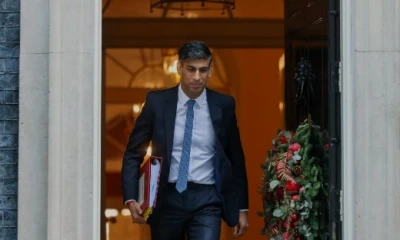British Prime Minister Rishi Sunak is facing a probable revolt within his own party ranks as dissatisfaction brews over new legislation aiming to criminalise homelessness and grant expanded powers to police for addressing rough sleepers on the streets. Growing resistance from Conservative Party MPs against the steps proposed in the Criminal Justice Bill, presently under review in the House of Commons and anticipated to be enacted before the forthcoming general election later this year.
The proposed legislation, introduced by former Home Secretary Suella Braverman, seeks to impose fines of up to £2,500 or incarceration on rough sleepers in England and Wales. Concerns among Conservative MPs have surged, with many labelling the bill as unjust and potentially criminalising individuals, who find themselves without shelter.
“A lot of colleagues believe that the bill as it stands is completely unacceptable because it would have the effect of criminalising people, who have no choice but to sleep on the streets. We are urging ministers to think again,” expressed Tory MP Bob Blackman, who also serves as joint secretary of the influential Conservative backbench 1922 Committee.
Many well-known figures within the Conservative Party, including former Tory leader Sir Iain Duncan Smith and former Deputy Prime Minister Damian Green, have thrown their weight behind amendments aimed at removing the proposed police powers. Green outlined the importance of offering practical solutions to help individuals off the streets rather than resorting to punitive measures.
The proposed legislation forms part of the Conservative Party’s strategy to project a tough stance on crime as it braces for an arduous general election campaign, compounded by prevailing anti-incumbency sentiments. Alongside provisions targeting homelessness, the bill includes measures to expand police authority, enhance post-release monitoring for certain offenders, and increase penalties for specific crimes.
Despite the broader aims of the legislation, concerns persist among ministers that contentious issues like homelessness could overshadow the intended agenda. Opposition to the bill underscores the need for a more comprehensive approach to addressing homelessness, with calls for increased investment in affordable housing and emergency accommodation.
Polly Neate, chief executive of the homelessness charity Shelter, condemned the proposed legislation as unfair, advocating for preventative measures to mitigate homelessness and substantial investment in social housing to effectively address the issue.
The growing dissent within the Conservative Party poses a significant challenge for PM Rishi Sunak as he navigates the legislative process and seeks to maintain party cohesion ahead of critical electoral contests.

















